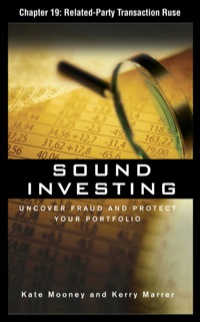

The ABC Company had two options for sourcing molded plastic parts, and these options are presented in the table below. Now, the ABC Company has identified another potential supplier for the molded plastic parts. The new supplier has bid $0.0600 per part but also will impose a shipping and handling charge of $0.0050 per unit. Additional inventory handling charges should amount to $0.0100 per unit. Finally, purchasing costs are estimated at $35 per month for the length of the 36-month contract. Note that the forecasted demand is a total of 1 million units over the 36 months. Click the icon to view the total cost analysis for the sourcing decision at ABC. a. The total cost per unit for the new supplier is $. (Enter your response rounded to four decimal places.) The outsourcing option with the new supplier is than insourcing. b. Suppose the three-year volume is expected to rise to 1.5 million, rather than 1 million, molded plastic parts. The total cost per unit associated with insourcing is now $ (Enter your responses rounded to four decimal places.) What explains the difference? O A. The difference in cost per unit is explained only by the larger volume absorbing the fixed "engineering/design costs." OB. The difference in cost per unit is explained only by the larger volume absorbing the fixed "equipment depreciation." O C. The difference in cost per unit is explained by the larger volume absorbing the fixed equipment depreciation" and "engineering/design costs." OD. None of the above. c. What other factors, other than costs, should ABC consider when deciding whether to make the molded parts in-house? O A. Whether the manufacture of parts is a core-competency of the firm. OB. What quadrant of their strategic portfolio the part will occupy. O C. The opinion of customers. OD. There are no factors other than cost that should be considered. O E. Both A and are correct. Insourcing option Operating Expenses Direct labor Benefits (50%) Direct material Indirect labor Benefits (50%) Equipment depreciation Overhead Engineering/design costs Total cost per unit Outsourcing option Purchase price Shipping and handling Inventory charges Administrative costs Total cost per unit $0.0100 $0.0050 $0.0300 $0.0091 $0.0046 $0.0150 $0.0600 $0.0600 $0.1937 $15,000 absorbed over 1,000,000 units $60,000 absorbed over 1,000,000 units $0.1400 $0.0070 $0.0070 $0.0011 $0.1551 Savings per unit Total savings (1 million units) $0.0386 $38,600 The ABC Company had two options for sourcing molded plastic parts, and these options are presented in the table below. Now, the ABC Company has identified another potential supplier for the molded plastic parts. The new supplier has bid $0.0600 per part but also will impose a shipping and handling charge of $0.0050 per unit. Additional inventory handling charges should amount to $0.0100 per unit. Finally, purchasing costs are estimated at $35 per month for the length of the 36-month contract. Note that the forecasted demand is a total of 1 million units over the 36 months. Click the icon to view the total cost analysis for the sourcing decision at ABC. a. The total cost per unit for the new supplier is $. (Enter your response rounded to four decimal places.) The outsourcing option with the new supplier is than insourcing. b. Suppose the three-year volume is expected to rise to 1.5 million, rather than 1 million, molded plastic parts. The total cost per unit associated with insourcing is now $ (Enter your responses rounded to four decimal places.) What explains the difference? O A. The difference in cost per unit is explained only by the larger volume absorbing the fixed "engineering/design costs." OB. The difference in cost per unit is explained only by the larger volume absorbing the fixed "equipment depreciation." O C. The difference in cost per unit is explained by the larger volume absorbing the fixed equipment depreciation" and "engineering/design costs." OD. None of the above. c. What other factors, other than costs, should ABC consider when deciding whether to make the molded parts in-house? O A. Whether the manufacture of parts is a core-competency of the firm. OB. What quadrant of their strategic portfolio the part will occupy. O C. The opinion of customers. OD. There are no factors other than cost that should be considered. O E. Both A and are correct. Insourcing option Operating Expenses Direct labor Benefits (50%) Direct material Indirect labor Benefits (50%) Equipment depreciation Overhead Engineering/design costs Total cost per unit Outsourcing option Purchase price Shipping and handling Inventory charges Administrative costs Total cost per unit $0.0100 $0.0050 $0.0300 $0.0091 $0.0046 $0.0150 $0.0600 $0.0600 $0.1937 $15,000 absorbed over 1,000,000 units $60,000 absorbed over 1,000,000 units $0.1400 $0.0070 $0.0070 $0.0011 $0.1551 Savings per unit Total savings (1 million units) $0.0386 $38,600








